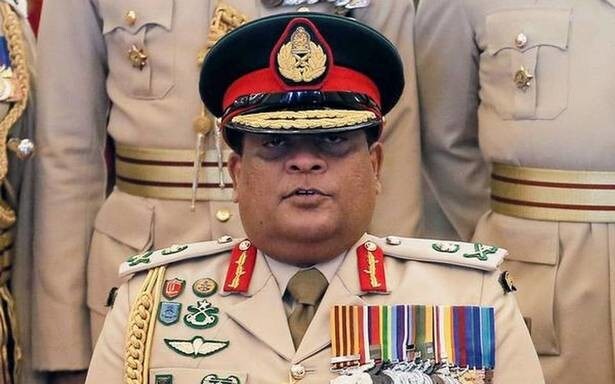
NEW YORK: Five Indian Americans and one Bangladeshi are among the 30 winners of the 2013 national competition for Paul and Daisy Soros Fellowships for New Americans. Selected from more than 1,050 applicants, each Fellow will receive tuition and stipend assistance of up to $90,000 in support of graduate education in the US.
Announcing the result, the Soros Fellowships website said, “What is most striking about the resulting community of New Americans is its diversity.”
The five Indian Americans are Amar Bakshi, Nishant Batsha, Sejal Hathi, Amrapali Maitra and Vivek Viswanathan. Ryaan Ahmed is from Bangladesh.
The Fellows are selected on the basis of individual merit and promise who seem best-positioned to make a distinctive contribution to some aspect of American life.
The son of Indian immigrants, Bakshi was raised in Washington, D.C. His visits as a teenager led him to found a nonprofit that enriches education in under-resourced schools by linking them to local artisans.
At Harvard, Bakshi earned a bachelor’s degree in social studies and visual & environmental studies, magna cum laude.
A Truman Scholar, he conducted interviews on the local media in Zimbabwe for his honor’s thesis. As he was leaving the country, he was jailed on charges of stealing government secrets. Choosing to fight the charges rather than pay a bribe, however, he won his freedom.
After graduation, Bakshi edited a web site at the Washington Post, and then traveled to a dozen countries for a series of texts and videos documenting “How the World Sees America.”
Bakshi has finished course work for an MA in international relations and economics from Johns Hopkins’ School of Advanced International Studies and is now pursuing a JD at Yale Law School.
Batsha was born in California to parents who immigrated to the United States from Bihar in the late 1970s.
As an undergraduate at Columbia, Batsha initially planned to follow a pre-med curriculum. A history course, however, unexpectedly generated a passion for the study of the past.
He served on the editorial board of the Columbia Undergraduate Journal of History, and founded and edited the Columbia Undergraduate Journal of South Asian Studies. He graduated from Columbia magna cum laude and Phi Beta Kappa with a BA in history and in Middle Eastern, South Asian, and African studies.
As his commitment to history grew, he was also being drawn to creative writing. His first non-fiction piece, “Existential Googling,” was listed in the “best tech writing of 2011” and his first short piece of fiction was published in 2013. He is now exploring lives and experiences in the South Asian Diaspora, both as a writer working on his first novel and as a research scholar pursuing a Ph.D. in history at Columbia.
Hathi grew up in the Bay Area as the child of parents of Indian origin from Uganda and Tanzania. In coping with illness as a youth she found resonance in the needs of other girls facing gender inequality issues. The resulting insights led her, at age 15, to start a nonprofit, Girls Helping Girls. Subsequently she and a colleague founded “girltank.”
These organizations train and mobilize young women to create sustainable social change. The response has been astonishing: the two organizations have grown into a global movement that now reaches more than 30,000 young women in more than 100 countries.
Hathi attends Yale University as a Global Health Fellow. A U.S. Presidential Scholar and a Truman Scholar, she will graduate in spring 2013 with a BS in molecular biology. She plans to earn her MD at Stanford Medical School and then to work at the nexus of medical entrepreneurship, international women’s health, and social innovation.
Born in India, Maitra spent part of her childhood in New Zealand before the family settled in Texas when she was ten. The narrative of her grandfather’s migration during the Partition of South Asia inspired her to pursue studies of history and literature.
At Harvard, Maitra won the Oliver Dabney Prize for her junior essay on the literature that emerged during Sri Lanka’s civil war. A summer volunteering as an HIV/AIDS educator in Tanzania made her aware of how strongly stigma, domestic violence and other social variables affect the experience of illness.
Returning to Harvard, she led a student-run peer counseling group and wrote her senior thesis on representations of madness in Indian literature, for which she was awarded highest honors. An accomplished Bharatanatyam dancer, she also directed Harvard’s South Asian Dance Company.
As a medical student at Stanford, Maitra served as a manager of a student-run free clinic and conducted research on attitudes toward domestic violence in Bangladesh. She is pursuing a Ph.D. in anthropology as well as an MD.
Viswanathan was born in Brooklyn to parents of Indian descent. His parents supported his childhood passion for history through family visits to 12 presidential libraries.
Admitted to Harvard, he excelled as a writer and historian. He served as managing editor of the Harvard Political Review and was awarded highest honors by the history department for his thesis. Following graduation from Harvard, Viswanathan earned a master’s degree (MPhil) in historical studies as a Henry Fellow at the University of Cambridge.
Viswanathan is also an accomplished endurance athlete. He recently finished an Ironman triathlon – a 2.4-mile swim, 112-mile bike ride and 26.2-mile run – in less than 14 hours.
Viswanathan is pursuing joint JD and MBA degrees at Stanford. He plans a career as a policymaker and hopes to serve as well as an elected public official.
Ahmed was born in the UK to physicians from Bangladesh. Throughout high school he was drawn to music: he studied classical guitar, played in rock and jazz bands, and sang in choirs.
When Ahmed went on to Harvard he intended to pursue a degree in neurobiology and then a career in medicine. As a freshman, however, he discovered the lute and was soon playing in an opera pit and a baroque orchestra.
At Harvard, he directed the Harvard Early Music Society, a baroque opera company, and the Harvard Chamber Singers, a choir for Renaissance music.
Ahmed will continue his studies with Paul O’Dette as part of his study for an MM degree in early music at the Eastman School of Music.
India Post News Service






